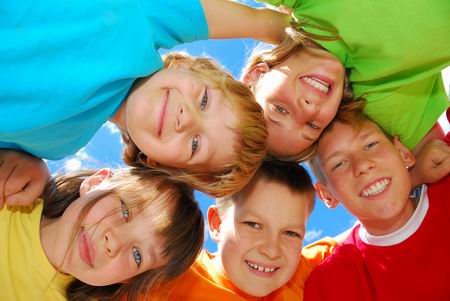
Navigating Cultural Identity in Multicultural Families
June 14, 2025Teaching Children the Art of Connection, Empathy, and Resilience
Friendships are some of the most meaningful—and sometimes challenging—parts of a child’s development. From playground politics to peer pressure, learning how to build and maintain healthy social relationships is essential for growing confident, compassionate kids.
As parents, our role isn’t to solve every social issue for our children but to equip them with the tools to handle conflict, build trust, and develop a strong sense of self. With guidance and support, kids can navigate the ups and downs of friendship with confidence and empathy.
Why Friendships Matter More Than We Think
While academic skills often take center stage, social skills are just as vital for long-term well-being. Strong peer relationships contribute to emotional health, school success, and even future career resilience.
Friendships help kids:
-
Learn empathy and cooperation
-
Handle disagreements and disappointment
-
Build communication and listening skills
-
Feel a sense of belonging
These early experiences lay the groundwork for emotional intelligence that lasts into adulthood.
Helping Your Child Make (and Keep) Friends
For some children, making friends comes naturally. For others, it can feel overwhelming or confusing. No matter their temperament, kids benefit from some thoughtful coaching on how to connect with others.
Here’s how to support them:
-
Practice conversation starters and sharing skills at home
-
Encourage participation in group activities or hobbies
-
Model kind, respectful interactions in your own relationships
-
Celebrate acts of kindness and inclusion
Friendship is a learned skill—one they can get better at with time and practice.
What to Do When Friendship Gets Messy
Arguments, exclusions, jealousy—it’s all part of the social learning curve. The goal isn’t to protect your child from every uncomfortable moment but to help them process what happened and respond with integrity.
Try this when social challenges arise:
-
Listen without immediately fixing
-
Ask open-ended questions: “How did that make you feel?”
-
Validate their emotions, even if the situation seems small
-
Role-play possible responses together
Your presence gives them the emotional safety to navigate tough moments and come out stronger.
Teaching Boundaries and Self-Respect
Not every friendship is healthy—and that’s a hard lesson for many kids. Understanding boundaries helps children recognize when a relationship isn’t serving them and how to respectfully step back.
Teach your child:
-
It’s okay to say no
-
True friends don’t manipulate or shame
-
They should feel safe and supported in a friendship
-
Being kind doesn’t mean tolerating unkindness
These lessons are powerful early defenses against bullying, peer pressure, and emotional dependence.
The Role of Digital Friendships and Social Media
As children get older, social life increasingly shifts online. While tech can be a helpful connection tool, it also brings new social risks.
Help your child navigate the digital landscape by:
-
Setting screen time and online communication boundaries
-
Discussing what respectful digital behavior looks like
-
Monitoring without micromanaging
-
Encouraging offline friendships and face-to-face play
Balance and awareness are key to raising socially savvy digital natives.
Final Thoughts: Connection Is a Lifelong Skill
Friendship isn’t always simple, especially for kids who are still learning who they are and how to relate to others. But with your support, children can develop the emotional tools to make meaningful connections, bounce back from setbacks, and treat others—and themselves—with compassion.
Keep the conversation open. With time, guidance, and practice, your child will grow into someone who builds friendships that last.



